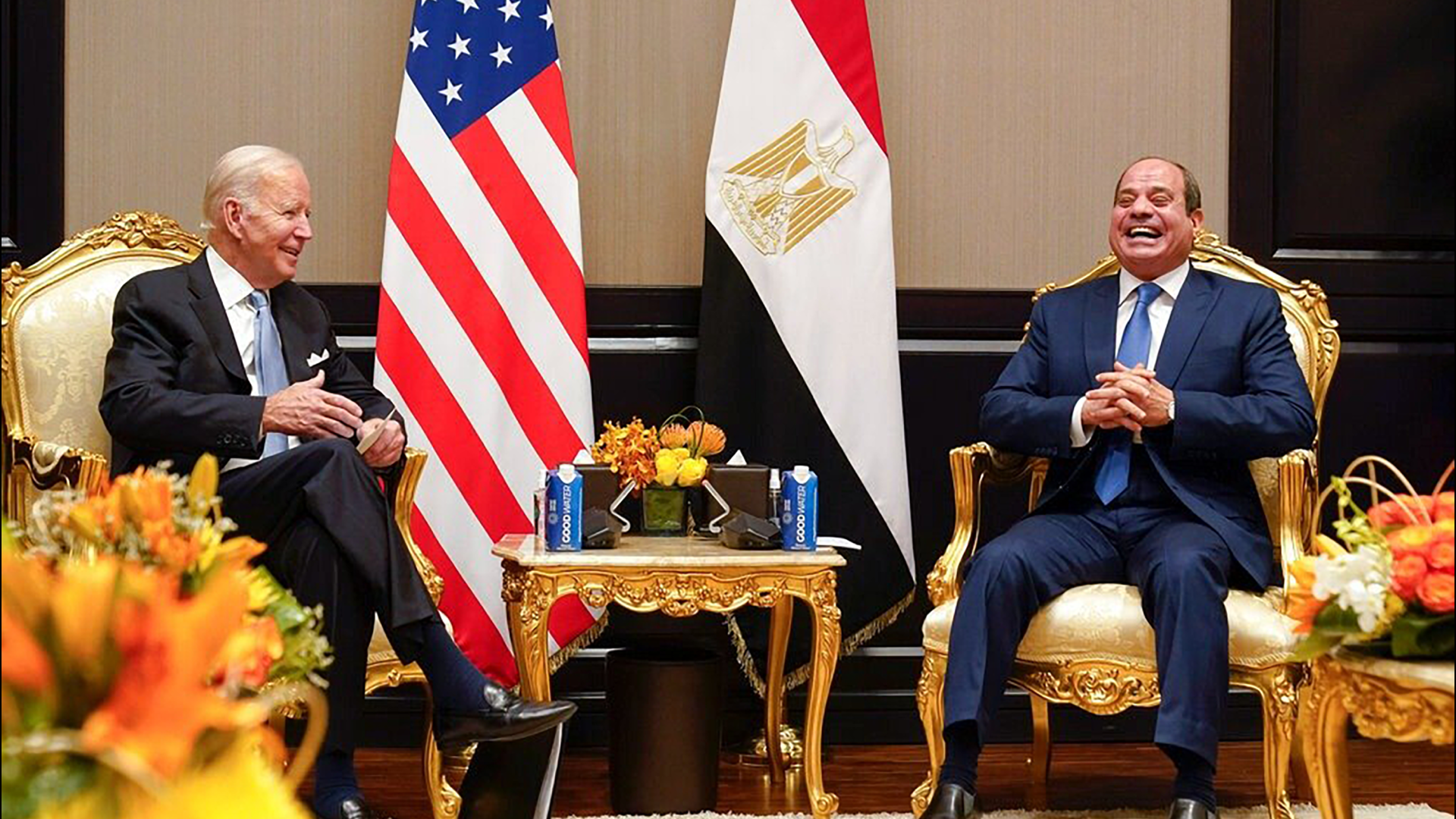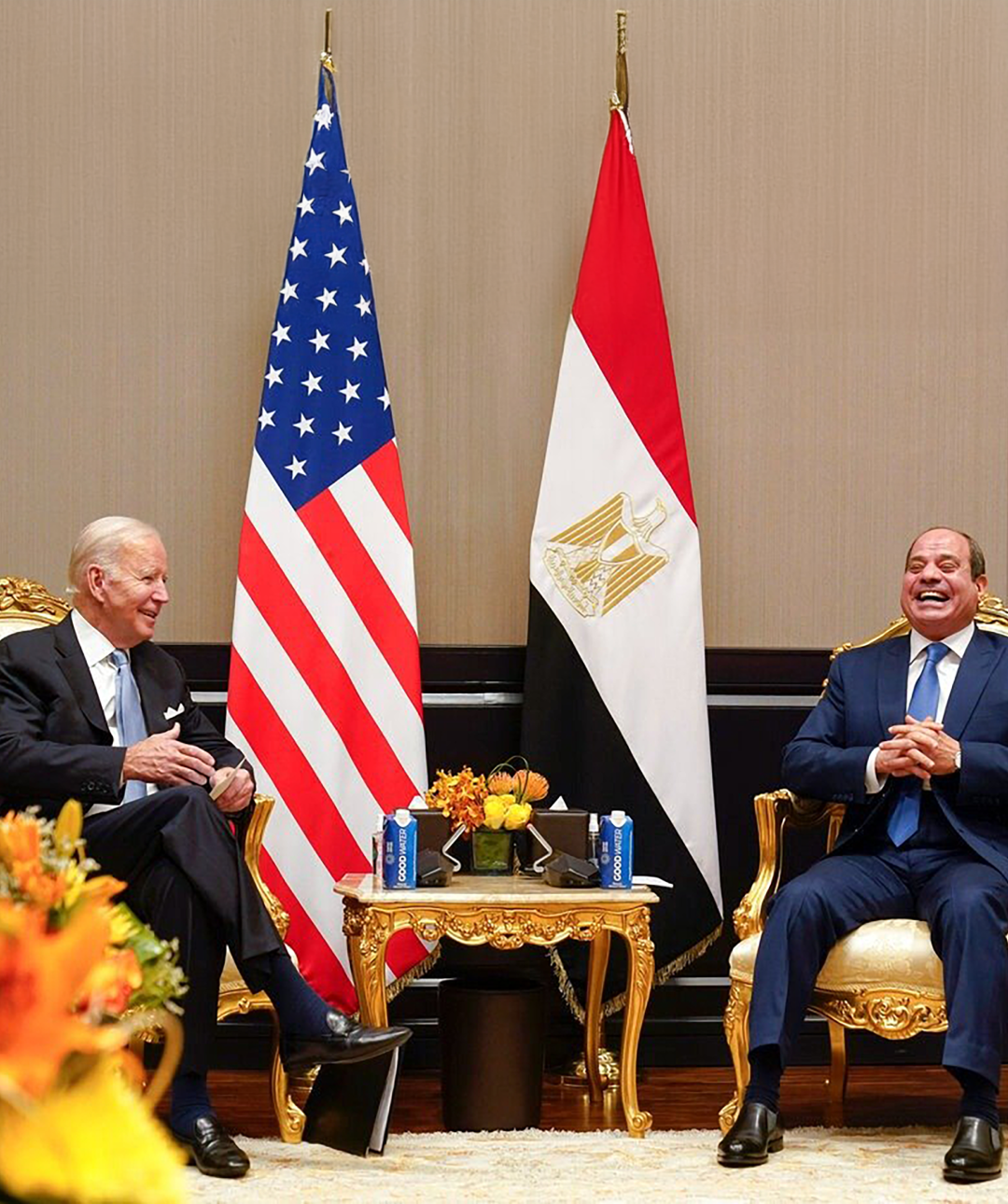By HRF Research Fellow Mohamed Mandour
While Egyptian President Abdel Fattah el-Sisi received star treatment during President Joe Biden’s US-Africa Leaders Summit, an American citizen and vocal critic of the Egyptian regime, Sherif Osman, languished in an Emirati prison for 46 days on spurious charges.
He was released two weeks ago, but how did he end up imprisoned in the United Arab Emirates in the first place? While in the United States, Osman had used his YouTube channel to condemn Sisi and to support calls for peaceful protests against him while Biden attended the United Nations COP27 climate summit in November in the Egyptian resort of Sharm El Sheikh. Sisi and his government, in an extension of the regime’s crackdown on free speech at home, reached beyond their border to request Osman’s arrest and extradition from Dubai in the United Arab Emirates (UAE), where he was visiting family.
Osman was promptly arrested by police officers and locked up by a supposed U.S. ally that hosts thousands of U.S. troops at an air base and whose ports “host more [U.S.] Navy ships than any other port outside the United States.” One would think, given the recent praise the UAE received from Biden for its aid in securing the release of basketball player Brittney Griner from Russia, the Gulf nation would think twice about keeping a U.S. citizen detained for more than a month on behalf of Egypt.
But Osman’s case also is noteworthy for other reasons. First, it reflects the Egyptian regime’s monitoring of dissidents abroad, even those on U.S. soil, where Osman recorded his YouTube videos, and even when the material doesn’t appear to get wide distribution (in this instance, Osman’s channel has a relatively low 35,900 subscribers and his videos garner 50,000 to 110,000 views, compared with Egypt’s population of around 110 million). Second, the Egyptian government’s strategic move to wait until Osman was in the UAE and have him extradited through an Arab League entity further indicates the political nature of his arrest. Otherwise, Egypt would have officially requested his extradition through the U.S. government. This was further reinforced by the UAE’s rejection of Egypt’s request to deport Osman.









